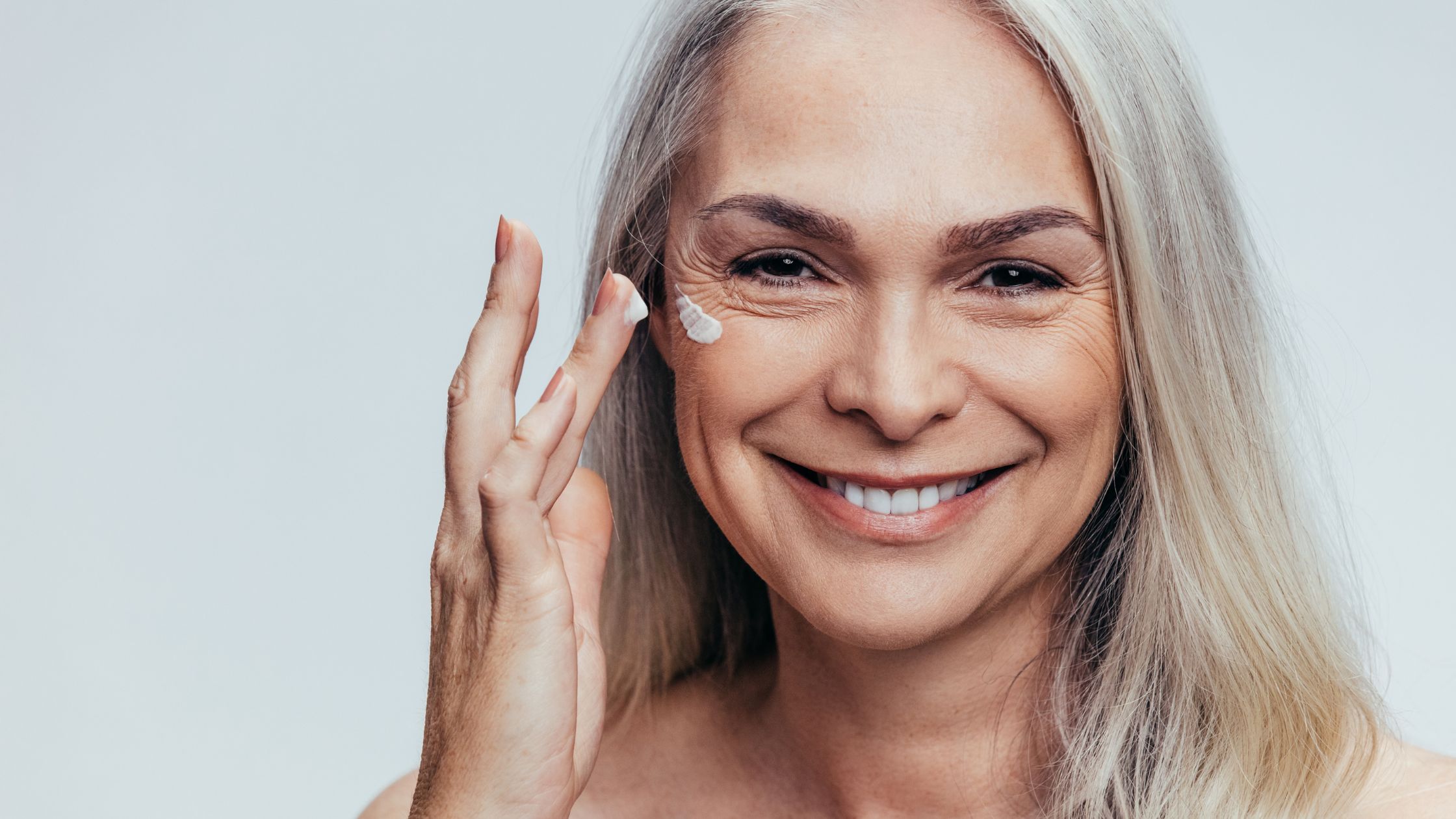Top 10 Anti-Aging Skincare Ingredients You Need to Try

Key Takeaways
What are the top 10 anti-aging skincare ingredients?
The best anti-aging skincare ingredients include:
- Retinol: Boosts collagen & reduces wrinkles
- Collagen: Restores skin elasticity
- Hyaluronic Acid: Hydrates & plumps skin
- Vitamin C: Brightens & protects
- Niacinamide: Reduces fine lines & strengthens skin
- Peptides: Supports skin repair
- AHAs: Exfoliates & improves texture
- CoQ10: Fights free radicals & firms skin
- Squalane: Locks in hydration
- Ceramides: Strengthens the skin barrier
Aging is a natural process, but with the right skincare routine, you can keep your skin looking youthful and radiant. Whether you’re looking to reduce fine lines, improve skin hydration, or boost collagen production, the right ingredients can make all the difference. Here are the top 10 anti-aging skincare ingredients that should be in your beauty arsenal.
1. Retinol – The Gold Standard for Anti-Aging
Retinol, a derivative of vitamin A, is a powerhouse ingredient for reducing fine lines and wrinkles. It increases cell turnover, boosts collagen production, and improves skin texture. Adding retinol to your nightly skincare routine can visibly reduce signs of aging over time.
Beauty Tip: Start with a low concentration and use it every other night to avoid irritation.
2. Collagen – The Building Block of Youthful Skin
Collagen is the protein responsible for keeping skin firm and plump. As we age, our collagen production declines, leading to sagging skin and wrinkles. Using collagen-boosting serums and creams can help restore elasticity and maintain youthful skin.
Beauty Tip: Look for skincare products containing hydrolyzed collagen peptides for better absorption.
3. Hyaluronic Acid – The Ultimate Skin Hydrator
One of the best ingredients for skin hydration, hyaluronic acid (HA) helps skin retain moisture, keeping it plump and supple. Hydrated skin is less prone to wrinkles, making HA a must-have for an anti-wrinkle skincare routine.
Beauty Tip: Apply hyaluronic acid on damp skin and seal it with a moisturizer to lock in hydration.
4. Vitamin C – The Brightening Antioxidant
Vitamin C is a powerful antioxidant that brightens skin, evens out skin tone, and stimulates collagen production. It helps fade dark spots and protects against environmental damage, making it a crucial ingredient for youthful skin.
Beauty Tip: Use a vitamin C serum in the morning before applying sunscreen for maximum protection.
5. Niacinamide – The Multi-Tasking Hero
Niacinamide, a form of vitamin B3, is known for its anti-inflammatory and brightening properties. It helps reduce fine lines, improves skin elasticity, and strengthens the skin barrier, making it an excellent anti-aging ingredient.
Beauty Tip: Pair niacinamide with hyaluronic acid for a well-rounded skincare routine that targets hydration and aging.
6. Peptides – The Skin Repair Agents
Peptides are amino acids that support collagen production and help with skin repair. They work to reduce fine lines, improve firmness, and restore skin’s natural barrier function.
Beauty Tip: Use a peptide-rich moisturizer or serum to boost skin regeneration while you sleep.
7. Alpha Hydroxy Acids (AHAs) – The Exfoliation Experts
AHAs, such as glycolic and lactic acid, help remove dead skin cells, improve texture, and boost collagen production. Regular exfoliation with AHAs can make your skin look fresher and reduce the appearance of wrinkles.
Beauty Tip: Use AHAs in the evening and always apply sunscreen in the morning, as they can make your skin more sensitive to the sun.
8. Coenzyme Q10 (CoQ10) – The Energy Booster for Skin
CoQ10 is an antioxidant that helps fight free radicals, boost collagen production, and reduce fine lines. It enhances skin’s natural repair process and improves elasticity.
Beauty Tip: Look for CoQ10 in creams and serums to enhance skin firmness and protect against premature aging.
9. Squalane – The Lightweight Moisturizer
Derived from olives or sugarcane, squalane is a lightweight, non-comedogenic oil that deeply hydrates and soothes the skin. It mimics the skin’s natural oils, preventing moisture loss and keeping skin soft.
Beauty Tip: Apply squalane after serums to lock in hydration and maintain a youthful glow.
10. Ceramides – The Skin Barrier Protectors
Ceramides are essential lipids that help maintain the skin’s barrier and prevent moisture loss. They keep skin hydrated, smooth, and resilient against environmental stressors that cause premature aging.
Beauty Tip: Use a ceramide-rich moisturizer to reinforce your skin’s natural defense system and maintain long-lasting hydration.
Final Thoughts
Incorporating these top anti-aging skincare ingredients into your skincare routine can help combat fine lines, improve skin hydration, and maintain youthful, radiant skin. Whether you’re new to retinol or already a fan of hyaluronic acid and collagen, consistency is key for long-term results.
FAQ
What are the best anti-aging skincare ingredients?
Some of the best anti-aging ingredients include retinol, collagen, hyaluronic acid, vitamin C, niacinamide, peptides, AHAs, CoQ10, squalane, and ceramides.
How does retinol help with aging skin?
Retinol boosts collagen production, increases cell turnover, and reduces fine lines and wrinkles, making it a top anti-aging ingredient.
Can hyaluronic acid help reduce wrinkles?
Yes! Hyaluronic acid hydrates the skin, plumps fine lines, and improves elasticity, making wrinkles less noticeable.
What’s the best way to use vitamin C in skincare?
Apply a vitamin C serum in the morning before sunscreen to brighten skin, fade dark spots, and protect against environmental damage.
Why are ceramides important for anti-aging?
Ceramides help maintain the skin’s barrier, prevent moisture loss, and protect against environmental stressors that cause premature aging.